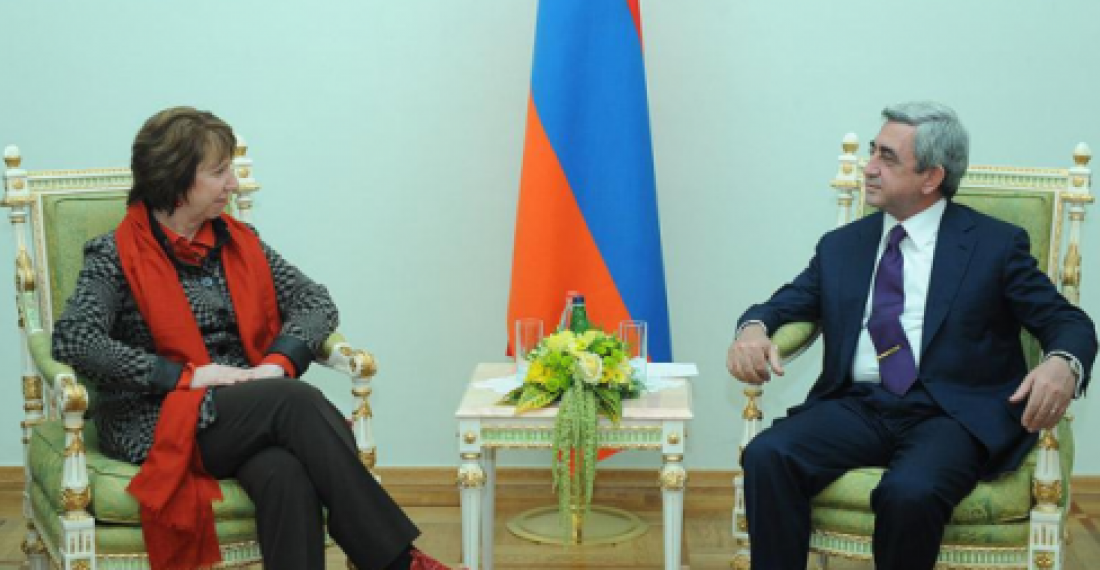The European Union High Representative on Foreign and Security Policy, Catherine Ashton will today conclude her visit to the South Caucasus and will fly to Moscow for a meeting of the Russia-EU Council. After a short visit to Tbilisi, she yesterday arrived in Yerevan where in the evening she met Armenian President Serzh Sargsyan. The Nagorno-Karabakh conflict and relations between Armenia and the European Union were high on her agenda in the discussions with the Armenian leader.
In an interview with MEDIAMAX news agency Catherine Ashton once more focused on the Nagorno Karabakh conflict. She said that "Confidence building, including through people-to-people contacts, is necessary to promote mutual understanding. The EU can help both sides engage with each other, prepare the ground for a solution, show the advantages of peace and of a peaceful Caucasus strongly connected to the EU".
She reiterated that the European Union "fully supports the OSCE Minsk Group in its efforts to achieve a peaceful resolution of the conflict on the basis of the principles of the non-use of force, territorial integrity and self-determination of people. The EU’s aim is not to change the format, nor to gain influence over the different sides, but to offer more active and stronger support".
Continued political and economic reforms were also on the agenda in the meetings that Catherine Ashton had in the region with the leaders of the three countries.
source commonspace.eu
photo: Catherine Ashton with Armenian President Serzh Sargsyan in Yerevan on 16 November (picture courtesy of the Press Service of the President of Armenia)







